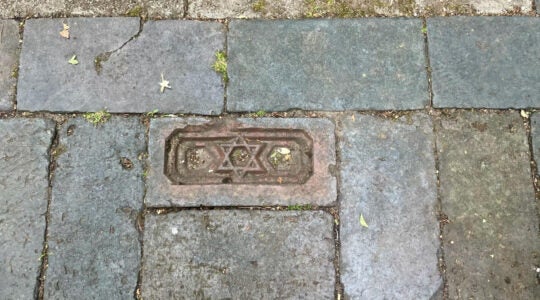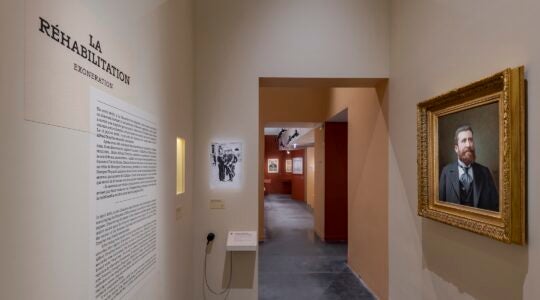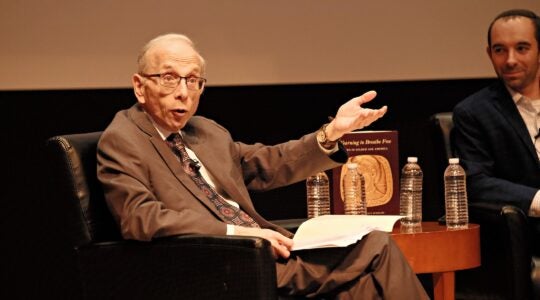Everyone dies. I learned this fact as a child. As I got older, I came to expect I’d losemy parents. Such is the nature of life (and God forbid it be otherwise). But knowingthis information did not prepare me for walking my mother to The Gates.
As a child, I had an elaborate image of the Gates of Heaven. I’m not sure where this image came from or why it persisted. I only know that “walking my mother to The Gates” was the way I thought about and talked about the last stage of my mother’s life.
That last stage was far longer than I’d ever anticipated. It began in 1999 when, at 81-years- old, my energetic, lively mother began to shuffle when she walked. Diagnosed with Parkinson ’s disease, it did not take long before her body, mind and spirit began to deteriorate. Stiff and uncomfortable, she eventually wound up wheelchair-bound, confused, often staring vacantly into space.
We moved her from her apartment into an assisted living residence with round–the-clock aides. Exhausted, depressed and depleted she further deteriorated, succumbing to dementia. All this took place over several long years.
Fast forward to July 2011 when an unexpected fall resulted in a broken leg and a short hospitalization. This was followed by a long stay in a rehab facility where, unfortunately, she could not grasp the physical therapy instructions.
“Your mother is uncooperative,” I was told by a well-meaning physical therapist in her 20’s. I was summoned to “coach” her in her physical therapy sessions, unfortunately, to no avail. Was it fair, I wondered, to pressure a 93-year-old woman with Parkinson’s and dementia to do exercises she continually failed at and label her “uncooperative”?
My mom was by now frustrated, frustrating, confused and exhausted. By now she didn't want to exercise, eat or take pills. Speech was minimal. Yes, she still “knew” both my brother and me, but clearly her life was miserable. And now, without regaining the ability to stand on her own two feet, she was unable to return to her assisted living residence. Where could we take her? How to find her a new home?
Fortunately for my mom and our family, a “failure to thrive” diagnosis permitted entry to her final home on earth, the MJHS Hospice Zicklin Residence. And it was there, from our first meeting with an incredibly loving, compassionate social worker, that a new conversation began. In her new home, she was no longer “uncooperative.” We were no longer encouraged to energize and “help” an unrealistic recovery process. A new reality was born: we were encouraged to let go and embrace the final stage of life.
The staff was amazingly attentive to both the concrete and the spiritual. On an early visit, one of the staff mentioned, “I notice how much your mom loves music.” This was my introduction to hospice care. In a process wherein the details of dying are honored, my mom’s likes and dislikes were a central focus of her care. Nothing was too small a detail: Do you think she would like another blanket? Is the light too much for her? Staff monitored the temperature in the room, noticed that the TV clicker needed replacing.
Accepting death meant it was no longer necessary to give her medication to pep her up or sleeping pills at night. It was no longer necessary to insist she do physical or occupational therapy or eat or drink when she didn't want to. We were in a new world where the acceptance of death was a hallmark, my mother’s immediate needs were the focus of her care, and keeping the family in the loop was a new cornerstone.
As time passed, she spoke less but was present, listening. Talking about death with the staff helped me talk about it with her. “You've put up a good fight mom, and I’m here with you, till the end,” I’d say. “You’ve been a good mom,” I’d tell her, “You’ve taught me to be one, too.”
Upon reflection: The very word “hospice” is scary to most of us. It makes death a certainty. But hospice is also a blessing. It helped our family face my mother’s death and to help her be comfortable. It relieved me of the pressure of being a cheerleader. It offered me comfort, solace and safety. It helped me walk her to the final Gates.
Judith Ruskay Rabinor, Ph.D. is a clinical psychologist, author, consultant and psychotherapist in New York. The Center for Jewish End of Life Care is collaboration between MJHS and UJA-Federation of New York, dedicated to facilitating conversations about the physical, emotional and spiritual needs of Jewish people affected by life-limiting conditions. This column and other resources are available through the Center website at www.centerforjewishendoflifecare.org.
The New York Jewish Week brings you the stories behind the headlines, keeping you connected to Jewish life in New York. Help sustain the reporting you trust by donating today.




